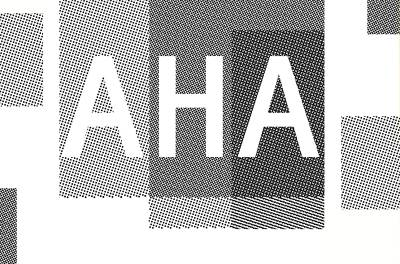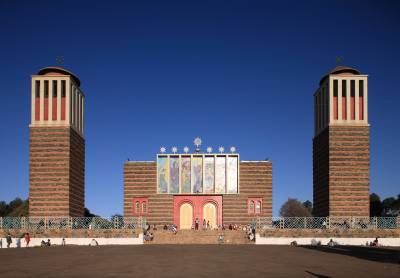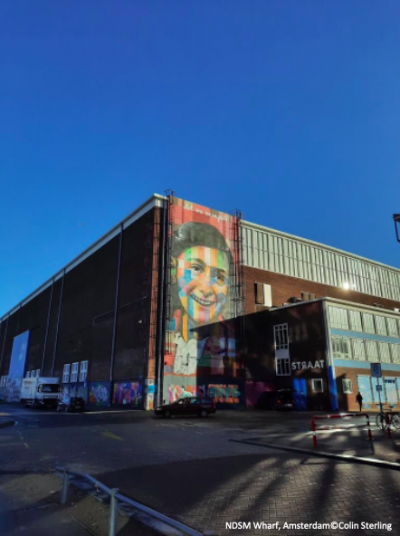Successful Awards 2021-22
Archaeology-Heritage-Art Research Network

2022 PROGRAMME: ‘Interdisciplinary Methodologies’
The 2022 activity of the AHA Research Network includes six forums with guest speakers (online), two in visits (London in person) will focus on key questions across three research threads: FIELDWORK, ARCHIVES, and MEMORY to ask how academics and practitioners can develop genuine interdisciplinary methodologies, connections, tools, frameworks and applications between the fields of contemporary art, archaeology and heritage.
The AHA Research Network is led by Dr Beverley Butler (Reader in Cultural Heritage - IoA) and co-coordinated by PhD researchers Ellen Pavey (IoA) and Nastassja Simensky (Slade).
Links
- Visit the Heritage Section at UCL, Institute of Archaeology
- Discover the Slade School of Fine Art
- Go to The AHA Research Network
- Check the profiles of Dr Beverley Butler, Ellen Pavey and Nastassja Simensky
Award: £1950
Image:
Modern Heritage in the Anthropocene (MoHoA)
Prof Edward Denison, Professor of Architecture and Global Modernities, The Bartlett School of Architecture, UCL, Dr Lakshmi Rajendran, Lecturer in Environmental and Spatial Equity, The Bartlett School of Architecture, UCL, Maxwell Mutanda, Lecturer in Environmental and Spatial Equity, The Bartlett School of Architecture, UCL, Nwola Uduku, Head of the School of Architecture, Liverpool University, Prof Shahid Vawda, Director of the School of African and Gender Studies, Anthropology and Linguistics, University of Cape Town, South Africa
Established in March 2020, MoHoA is the abbreviation of Modern Heritage of Africa / Modern Heritage in the Anthropocene. The principal and overarching objective of MoHoA is to reframe and decentre the global discourse on modern heritage to contribute to ongoing sector initiatives aimed at achieving equitable and sustainable planetary futures. MoHoA was conceived within an African frame because the continent has been uniquely marginalised by current conceptualisations of ‘modern’ within heritage discourses* and is expected to face the highest rates of urbanisation over the next 30 years.
MoHoA hosted a conference titled Modern Heritage of Africa at the University of Cape Town in September 2021 and will host a follow-up conference titled Modern Heritage in the Anthropocene at The Bartlett School of Architecture, in collaboration with Liverpool University, in Oct 2022.
This project with the CCHS comprises two preparatory workshops hosted by The Bartlett in April & June 2022 that will bring together existing and new partners (within the UK and internationally) and expand professional research networks in preparation for the UCL conference.

The intended outcomes will include developing and strengthening the MoHoA network and to support wider participation in the MoHoA conference in October 2022, enriching the discourse, connections, and publications within and/or resulting from the conference. These two pilot workshops will be instrumental in helping to develop a strong collaborative approach to the UCL conference, identifying key themes, priority areas, and participants. They would also support one of the principal outputs of MoHoA - the Cape Town Document on Modern Heritage, which is conceived in the spirit of the Nara Document on Authenticity (1994) and seeks to achieve a similar globally agreed redefinition of modern heritage, relieved of the Eurocentric, homogenous, universalising, developmental, and colonial associations, and reframed as a diverse and planetary phenomenon that played a key role in heralding the Anthropocene.
*(Africa has just 85 cultural UNESCO World Heritage sites (less than Italy and Spain combined), compared with Europe’s 424, and only one of these is exclusively categorised as ‘modern heritage’ – Asmara: A Modernist African City, the former Italian colonial city and capital of Eritrea, the Nomination Dossier for which the lead applicant prepared in 2016 and which won the Royal Institute of British Architects’ (RIBA) President’s Medal for Research in 2016.)
Links
- Check the Modern Heritage in the Anthropocene (MoHoA) website
- Soon : New website presently being created under a Bartlett School of Architecture, Architecture Research Fund (ARF)
- Go to the academic profiles:
Award £4000
Image: St Mary’s Orthodox Cathedral (designed by Giuseppe Malaguti, 1938-39), in the centre of the UNESCO World Heritage Site of Asmara, Eritrea. © Edward Denison.
Critical Heritage and Social Justice
Veysel Apaydin, Culture Communication & Media, UCL Institute of Education, Kalliopi Fouseki, UCL Institute for Sustainable Heritage, The Bartlett
The proposed workshop project on critical heritage and social justice aims to bring researchers from heritage studies, anthropology, architecture, conservation, geography, sociology, archaeology departments and the heritage and museum sectors to discuss and define themes of critical heritage in a rapidly changing world in the 21st century. Social justice can be seen as entangled with many of the central themes of critical heritage that require urgent responses, these include the climate crisis, conflict, refugee crises, social, cultural and economic inequalities, increasing all forms of racism and discrimination especially of ethnic minorities and different gender identities. In particular, the workshop aims to locate and develop theoretical approaches and methods to respond to social, economic and political issues. Although the workshop will have very broad themes and be open to the development of new themes, the relationship between critical heritage and social justice will be explored through three key questions:

2) How can different approaches to heritage operate to decrease inequalities and injustice in such communities?
3) How might heritage become more interdisciplinary to respond to such inequalities and broader contemporary social issues?
Outcome: The main outcome of this workshop will be an open access edited collection with the UCL Press
Organising Committee:
Veysel Apaydin, Culture Communication & Media, UCL Institute of Education
Kalliopi Fouseki, UCL Institute for Sustainable Heritage
David Francis, UCL Institute of Archaeology
Jonathan Gardner, School of Art, Edinburgh College of Art, University of Edinburgh
Rachel King, UCL Institute of Archaeology
Sara Perry, Museum of London Archaeology
Colin Sterling, University of Amsterdam
Dates: May 3-4 2022
Location: Art, Design & Museology Studios, UCL Institute of Education
Links
Check the following profiles
- Veysel Apaydin, UCL Institute of Education
- Kalliopi Fouseki, UCL Institute for Sustainable Heritage
- David Francis, UCL Institute of Archaeology
- Jonathan Gardner, School of Art, Edinburgh College of Art, University of Edinburgh
- Rachel King, UCL Institute of Archaeology
- Sara Perry, Museum of London Archaeology
- Colin Sterling, University of Amsterdam
Award £3400
Photo: NDSM Wharf, Amsterdam © Colin Sterling.
 Close
Close

